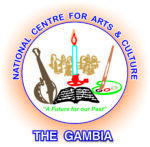History
The first copyright law in The Gambia called the Copyright Ordinance was enacted by the colonial government in 1911. Noticeably, it only addressed texts and written documents, as at the time these were the main creative products coming out of the colony, and the bulk of it was indeed material published by the government such as sessional papers, gazette entries, reports and speeches. The extremely low levels of literacy at the time which was a direct result of the meagre opportunities for education, meant that there was very little creative writing or publications by local Gambians for much of the colonial period. With independence, the situation had began to change with Gambian writers producing a small amount of publications, but these were published abroad. Music, drama and theatre also began to develop after independence with groups such as Super Eagles, Ifangbondi and Guelewar, but again the copyright law remained stagnant and unresponsive. The growth in the media from the early 1990s when many FM private radio stations, newspapers made it even more urgent to have a new law which will respond to the changing times in the creative and artistic landscape. In 1993, Gambia signed the Berne Convention on the protection of creative and artistic rights. This set the stage for a new law which will also reflect the provisions of the Convention.
In 2001, consultations were started with stakeholders on formulating a new copyright law for the country and their views were distilled into a working paper which formed the basis of the new copyright Act of 2003.
Acts and Regulations
The 1911 ordinance was repealed by the Copyright Act of 2003. The 2003 Act widen the protection of copyright to include creative, artistic, choreographic, signals, and adapted works by citizens of the Gambia or residents of the Gambia of countries which are signatory of the Berne Convention. The Act also provides for the creation of an autonomous body corporate institution called Gambia Collecting Society which will collect royalties for artists whose works are used by radio stations, clubs, taxis, hotels etc. The body should be setup and run by the artists themselves.
The Regulations
So far one regulation titled WORKS REGISTRATION REGULATION 2010 has been signed by the Minister of Tourism and Culture. It provides for a registration form, prescribed fee and also a registration/certificate of copyright ownership.
Copyright Office
The new Act provides for a copyright office under the National Centre for Arts Culture (NCAC) charged with (a) registration of intellectual property works such as film, books, music products; (b) to fight piracy and: (c) to sensitize the public on copyright issues. In addition, the Copyright Office is also accepting works for registration into the database of government as required in the Act..
In sensitization, The Copyright Office has over the past five years held six international training seminars, workshops and meetings targeting stakeholders in the copyright sector, mainly funded and organised by WIPO, ECOWAS, ARIPO and other partners. These events have helped to spread the message of copyright to the creative community, in addition to the regular media sorties on copyright matters by Copyright Director.
Collecting Society of The Gambia (CSG)
The Act also provides for the creation of an autonomous body corporate institution called Gambia Collecting Society which will collect royalties for artists whose works are used by radio stations, clubs, taxis, hotels etc. The body should be setup and run by the artists themselves. The NCAC sits on the 9 Board and has only regulatory roles. Yet, the NCAC has actively supported artists like writers, drama, music, film and theatre practitioners to come together into associations so that the Society can start operations.
In May 2013, the Copyright Office finally succeeded in calling up the constituent Congress of the Collecting Society. All the six artists associations provided for in the Act to constitute the Board were represented by delegates. The NCAC raised the funds for the drafting of the constitution, the congress and over saw the voting process. The Nine member Board was fully constituted and has since started work. It meets regularly and has benefitted from a training seminar organised by WIPO in October 2013. The constitution of the Board is indeed one of the highlight success stories of government. The Copyright Office has worked with the Board to draft a cabinet paper seeking government support for the start up of the Society which has been submitted to the Ministry. The Copyright office has facilitated the use of a spare room at the Gambia Tourism and Hospitality Institute for use by the Society Board as temporary offices equipped with material donated by ECOWAS. The office has already started to operate with volunteers from the Board members registering works and membership.
Enforcement
The 2003 Act has clear and decisive enforcement provisions. For example, the Act provides for copyright inspectors under the copyright office who are mandated with Police powers to enter and search premises where copyright infringement is suspected. Moreover, the NCAC has established excellent working relations with the Fraud section of the Gambia Police who are also mandated to cover cases of suspected copyright infringement such as piracy and counterfeit. It is of course the primary duty of the right holder to ensure that he or she takes appropriate legal action when their rights are infringed.
Registration
Although the Berne Convention does not make the formality of registering works as pre-requisite for copyright protection, the Gambia copyright Act 2003 requires it to enable government build a database of works, and also to provide proof of ownership. So far there has been a steady stream of works deposited by creators seeking registration.
A Works Registration Advisory Committee has been formed to assist in registering works and will soon be inaugurated into office. When a work is registered, the rights holder will be issues with a Certificate of Registration.
Below is the copy of the 2004 Copyright Act and Registration Form:
